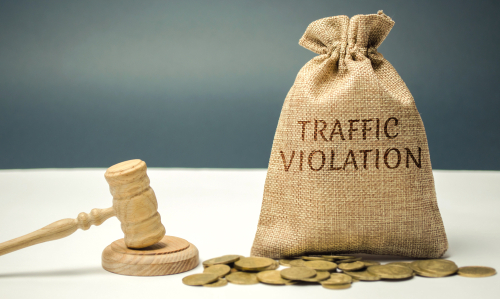In 2025, navigating New Jersey’s traffic violation system can seem daunting at first. However, understanding the basics of how violations are processed and penalized can make dealing with a ticket much less stressful. This article provides a clear and concise overview of the system, tailored to ensure that you know exactly what to expect and how to handle any traffic tickets you might receive.
The Basics of Traffic Violations in New Jersey
When a driver in New Jersey is suspected of violating traffic laws, the process begins with the issuance of a traffic ticket by a law enforcement officer. This ticket specifies the nature of the violation and includes information on how and when to respond. Drivers have several options: they can pay the ticket, contest it in court, or sometimes attend a defensive driving course to mitigate the penalties.
Online Ticket Payment: A Modern Convenience
One of the most significant advancements in New Jersey’s traffic system is the ability to handle ticket payments online, a convenience that has been streamlined in 2025. The platform most commonly used for this purpose is njmcdirect – www.njmcdirect.com ticket payment online. This website allows drivers to easily pay their fines from the comfort of their own homes, reducing the need for in-person visits to the court.
How to Use NJMCDirect for Payment
To pay a ticket online through NJMCDirect, simply visit the website, enter your ticket information and the court ID as instructed on the site. The process is designed to be user-friendly, ensuring that even those who are not tech-savvy can navigate it without issues. The website also provides detailed instructions and support if you encounter difficulties.
Penalties and Points
Penalties for traffic violations in New Jersey vary depending on the severity of the offense. Minor violations may result in a fine, while more serious offenses can lead to points on your driver’s license, increased insurance rates, or even suspension of your driving privileges. It’s crucial to understand the penalties associated with your violation so you can take appropriate action.
Contesting a Ticket
For those who believe they have been wrongfully ticketed, contesting the charge is an option. This would typically require you to appear in court on the designated date mentioned on the ticket. During the hearing, both the driver and the officer will have the opportunity to present their case, after which the judge will make a ruling.
Additional Resources
For further information on traffic violations and related procedures, websites like njmcdirects.us and www-njmcdirects.us provide additional resources and guidance. These platforms offer insights into commonly asked questions and specific details relevant to New Jersey’s traffic laws.
Conclusion
Understanding New Jersey’s traffic violation system is essential for all drivers in the state. With the advent of online platforms like NJMCDirect, managing the consequences of traffic tickets has become more accessible than ever. Remember, safe driving practices are always the best way to avoid any complications with traffic laws and keep our roads safe.


